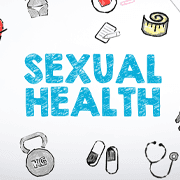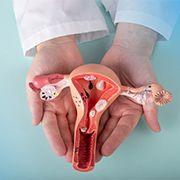Paracetamol for Body pain: Effects and Side Effects
In This Article
Paracetamol for Body pain: Effects and Side Effects
Ashitha Kareem
Updated on July 16, 2024
Medically verified by Dr. Arya
Fact checked by Sreemoyee

Wellness
10 minutes
When having body pain, headache or cramps, the doctor might have asked you to take paracetamol tablets. Or, you may have taken it yourself over the counter from the pharmacy shop.
Have you ever wondered about its effectiveness?
Karepedia is here to clear all your queries.
In this blog, you can read about the effects and side effects of paracetamol on body pains.
What is Paracetamol?
Paracetamol (acetaminophen) is a common over-the-counter (OTC) medication.
It helps with pain relief and reduces fever. It is used to treat mild to moderate pain.
Acetaminophen, either alone or in combination, is commonly used to reduce fever, and to relieve pain from headaches, muscle aches, menstrual periods, sore throats, toothaches and backaches.
Types of Paracetamol
Paracetamols are available in different forms:
| Type | Dosage | Usage | Pros | Cons |
|---|---|---|---|---|
| Tablets & Caplets | 500 mg, 1,000 mg | Adults, older children | Convenient, long shelf life | Not for difficulty swallowing |
| Liquid Suspension | Varies (children) | Young children | Easy for kids, precise dosing | Shorter shelf life, needs accurate measurement |
| Effervescent Tablets | Varies | Adults, those avoiding pills | Rapid absorption, gentle on stomach | Expensive, may contain sodium |
| Suppositories | Varies | Children, adults with vomiting | Bypasses digestion, alternative route | Uncomfortable, inconsistent absorption |
| Oral Dispersible Tablets (ODTs) | Varies | Adults, those without water | Convenient, fast absorption | Slight taste, expensive |
| Paracetamol with Caffeine | Varies | Headaches, migraines | Enhanced pain relief, reduces fatigue | Not for caffeine sensitivity, side effects |
| Paracetamol with Codeine | Prescription based | Moderate to severe pain | Stronger relief | Dependency risk, prescription needed |
| Intravenous (IV) Paracetamol | Clinical settings | Post-surgery, rapid relief | Quick effect | Requires professional administration, expensive |
 10mint
10mintSexual Health Matters: How To Maintain Your Sexual Health ?
 10mint
10mintYour Guide to Sexual Health Screening and Preventive Measures
 10 mints
10 mintsSTDs in Women: Comprehensive Guide on Symptoms and Treatments
Get a Callback Now
Effects of Paracetamol
Paracetamol works in our body in around 30 minutes. It relieves pain and helps you lower your temperature.
The effect of a paracetamol tablet lasts around 4 to 6 hours.
1.Pain Relief
-
Effectiveness: Mild to moderate pain (headaches, muscle aches, arthritis, back pain)
-
Mechanism: Blocks prostaglandin production in the central nervous system (CNS)
2.Fever Reduction
-
Effectiveness: Lowers fever
-
Mechanism: Acts on the hypothalamus to regulate body temperature
3.Non-Inflammatory
- Properties: No anti-inflammatory effects
- Usage: Suitable for non-inflammatory pain (tension headaches, post-surgical pain)
Side Effects of Paracetamol
Paracetamol is not a curry masala you can add to match your flavor.
Having paracetamol is completely fine when it is under recommended dosages.
Paracetamol very rarely causes side effects if you take it at the right dosage.
Acetaminophen is used as a pain reliever in over 600 medicines. Taking acetaminophen alone or in combination of medicine containing these drugs too much can lead to overdose.
So taking paracetamol as against your doctor's advice can provide you with temporary relief, but put you at long term risk.
Some side effects include:
Severe allergic reactions :
- Lips, throat or tongue suddenly become swollen
- Difficulty in breath
- Skin, tongue, lips, palm of your hands and sole of your toes turn blue
- State of confusion, dizziness and drowsiness
Liver Damage
Paracetamol Overdose
Paracetamol is like a staple medicine in many households. The cost of treatment is high for an average family so they rely on affordable care that can relieve their symptoms and help them carry on with their routine lifes.
Usually they don’t consider the side effects of the medicine but focus on the immediate issue. Sometimes when the symptoms are not reducing they increase the dosages voluntarily.
This is the major cause of the intentional paracetamol overdose.
Sometimes the medications people use are combinations of acetaminophen. When people use paracetamol over these medications, sometimes it may cause unintentional paracetamol overdoses.
Intentionally or unintentionally paracetamol overdoses can lead to liver damage or death.
Next time before you take your paracetamol, think about having a liver disease and liver damage due to an unnoticed problem.
Symptoms of Paracetamol Overdose
The symptoms of overdose may not be similar to everyone. In some people, it may have no symptoms while in others, the symptoms took several days to appear.
And in most cases the symptoms are not easily distinguishable. The overdose symptoms may be similar to that of a cold or a flu.
Symptoms of acetaminophen overdose may include:
-
Nausea,
-
Vomiting,
-
Abdominal pain,
-
Confusion and
-
Jaundice (yellow skin and eyes).
When To Avoid Paracetamol
Paracetamol is a medication that has minimal side effects if taken as per doctor advice.
DO NOT take paracetamol if you have:
-
an allergy to paracetamol
-
taken other medicines that contain paracetamol
-
already taken the recommended dose within a 24-hour period
Who should Avoid Paracetamol
DO NOT take paracetamol if you have :
-
liver problems
-
kidney problems
-
drink more than the recommended amounts of alcohol
-
you are very underweight
If you are of the above category avoid using paracetamol as a self treatment and better go for a doctor's opinion before taking paracetamol tablets.
Source; Health direct
Paracetamol doesn’t treat your disease. It just helps you relieve the pain.
Pain and fever can be body’s indication that something is wrong with you.
Taking paracetamol without prescription can let these symptoms go unnoticed till the disease becomes severe and paracetamol cannot stop the pain anymore.
It doesn’t mean you should not take paracetamol. It rarely has shown any side effects under prescribed dosage.
Self treatment is not advised. Do consult a doctor if you have any medical concerns. Especially if they are severe, recurring or cause inconveniences in your daily life.
Effectiveness: Paracetamol is effective for mild to moderate pain and fever reduction.
Mechanism: Works by blocking prostaglandin production in the central nervous system.
Types: Available in tablets, liquid suspension, effervescent tablets, suppositories, oral dispersible tablets, paracetamol with caffeine, paracetamol with codeine, and intravenous form.
Side Effects: Generally rare if taken at the correct dosage; can include severe allergic reactions and liver damage.
Overdose Risks: Intentional or unintentional overdose can lead to serious liver damage or death.
Usage Precautions: Avoid if allergic, have liver or kidney problems, consume excessive alcohol, or are very underweight.
Consultation: Always consult a doctor for recurring or severe symptoms.

